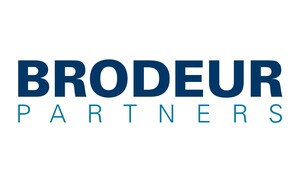
The MOOC Minefield: Study suggests careful navigation in move toward massive open online courses
First Survey of MOOCs Comparing Parents, Students, Alumni, Donors, and Employers
BOSTON, June 26, 2013 /PRNewswire/ -- Higher education should tread carefully. That is one of the main findings in the first public opinion survey in the United States comparing five key audiences affected by massive open online courses or MOOCs. The survey, commissioned by Brodeur Partners, was also the first to test messages in support and opposition to adopting a MOOC program.
"MOOCs are a hot topic as colleges and universities rethink and redesign curriculums to address a growing market for affordable access to education," said John Brodeur, chairman of Brodeur Partners and head of its higher education practice. "This survey provides unique insight into the challenges campus leaders face as they pursue or ignore MOOCs, but more importantly how they communicate those decisions to their most important audiences."
KEY AUDIENCE FINDINGS
The survey showed significant differences in attitudes towards MOOCs among five audiences often critical to higher education leadership: parents, students, alumni, donors and employers.
- Low MOOC familiarity. The survey showed that while over four in five (82%) of all respondents were familiar with the concept of online courses, only 23% of all survey respondents are familiar with MOOCs. Those most familiar with MOOCs were employers (33%) and students (30%) the least familiar were parents (23%).
- Modest conceptual support. In theory, audiences leaned modestly in favor of the idea of MOOCs. When provided a neutral description of MOOCs, 37% of respondents think it is a good idea for colleges to participate while 26% think it is a bad idea.
- Student / alumni splits. The study showed differences between alumni and students views of MOOCs. While students were the audience MOST aware of online courses in general, they were the least likely to say MOOCs were a good idea (26%) compared to 41% of alumni who thought MOOCs were a good idea. But when it came to influencing their desire to attend a particular college, students were overall neutral – 23% said it would make them more likely to want to attend the school, 26% less likely. When alumni were asked if a MOOC program would influence their decision to donate to that college, the response was a net negative – 26% said it would make them less likely and only 13% said it would make them more likely to donate.
- Parents are more interested in MOOCs for themselves, than their children. Just 17% of parents say they would be more likely to want a son or daughter to attend a college that offered many of their courses online or through MOOCs while nearly twice as many (31%) said they would be less likely. At the same time 47% of parents said they were personally interested in participating in a MOOC compared to only 37% of students.
KEY MESSAGE FINDINGS
The survey also tested the strength of messages often used in support of implementing a MOOC program and those messages often used to not pursue a MOOC program. The survey used a message-testing methodology known as M3 (MaxDiff Message Modeling). The main findings:
- Best supporting messages. Among all audiences, by far the strongest messages in support of MOOCs were arguments that they made higher education more widely available, more affordable, and provided greater flexibility to the student.
- Best opposition messages. Those messages in that test best in opposition to the adoption of MOOCs were that they risk compromising the "traditional college experience" and that they did not have the benefits of in-person instruction with a professor.
"The data suggests that colleges and universities should not ignore the appeal of MOOCs in making education more accessible and affordable," said Greg Schneiders, founder of PrimeGroup, which partnered with Brodeur on the survey. "At the same time, they must make clear that the traditional college experience is not going away."
According to Brodeur, "Like retail, travel services, and newspapers before them, higher education will need to figure out how to incorporate the benefits of the new technologies while not losing the heart and soul of who they are and what they do.
"Our no. 1 takeaway on MOOCs for all institutions is to communicate why or why not you are joining the movement. It should always be more about the student than the institution, more about the experience than the infrastructure, and more about the content than the methodology."
The survey was based on nationwide online survey conducted May 3-10, 2013 based on a total sample of 1,042 plus an oversampling of college students or students considering college (n=301) and parents of college students (n=218). The margin of error for the study was plus or minus three percent.
For more information on the survey or full results, please visit www.brodeur.com
About Brodeur Partners:
Brodeur Partners is a strategic communications company that helps organizations become and remain relevant in a complicated world. Headquartered in Boston, the company has five U.S. offices and operates in 33 countries globally. It is differentiated by its focus on relevance, behavioral change and ability to bring a discipline-agnostic approach to its non-profit, consumer and business-to-business clients. www.brodeur.com
SOURCE Brodeur Partners






Share this article